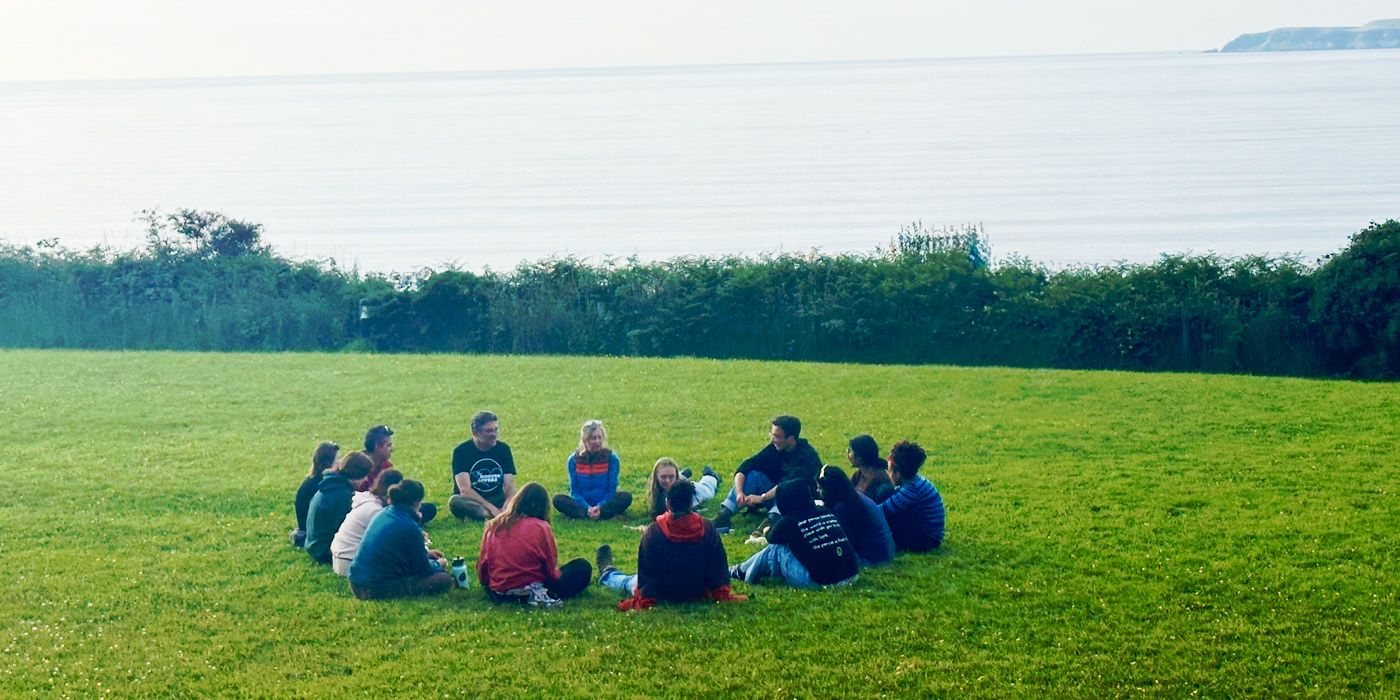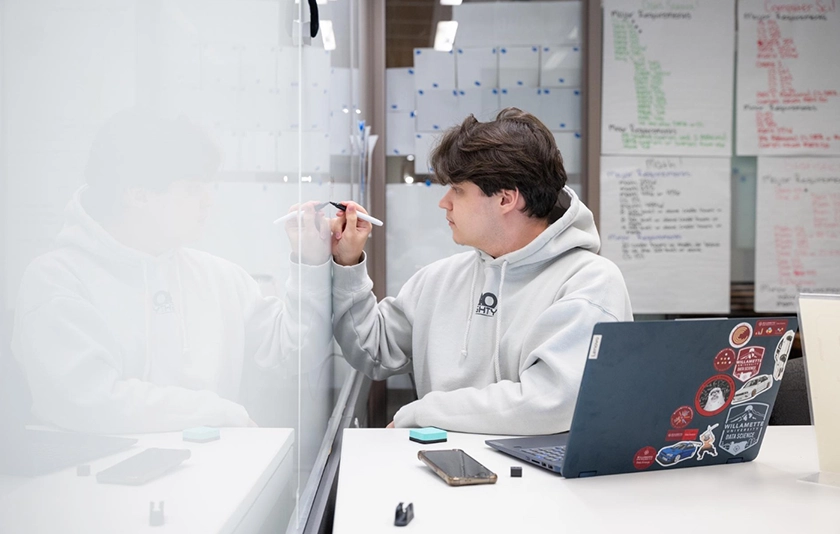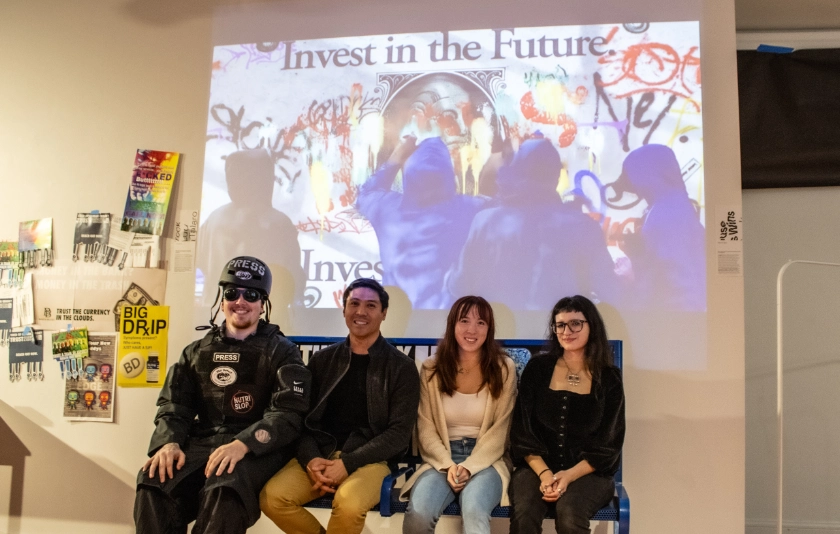Last summer, 12 students from Willamette University's Conversation Project traveled to Ireland to explore how communities can heal divisions and create belonging across differences. The journey took them from one of Willamette’s study abroad sites in Galway on the banks of the river Corrib in Western Ireland to Northern Ireland's Corrymeela Community, a peace and reconciliation center that played a pivotal role in the 1998 Good Friday Peace Agreement.
The summit at Corrymeela brought together an intergenerational group of peace builders — including elders who helped negotiate the end of The Troubles, the religious and political conflict that lasted for about 30 years from the late 1960s to 1998; current community leaders; and Willamette’s Conversation Project students, who are trained in facilitating difficult conversations. Also participating in the summit were representatives from the Center for Engaged Compassion and the American Immigration Council’s Center for Inclusion and Belonging, which provided a grant to support Willamette’s participation in the summit.
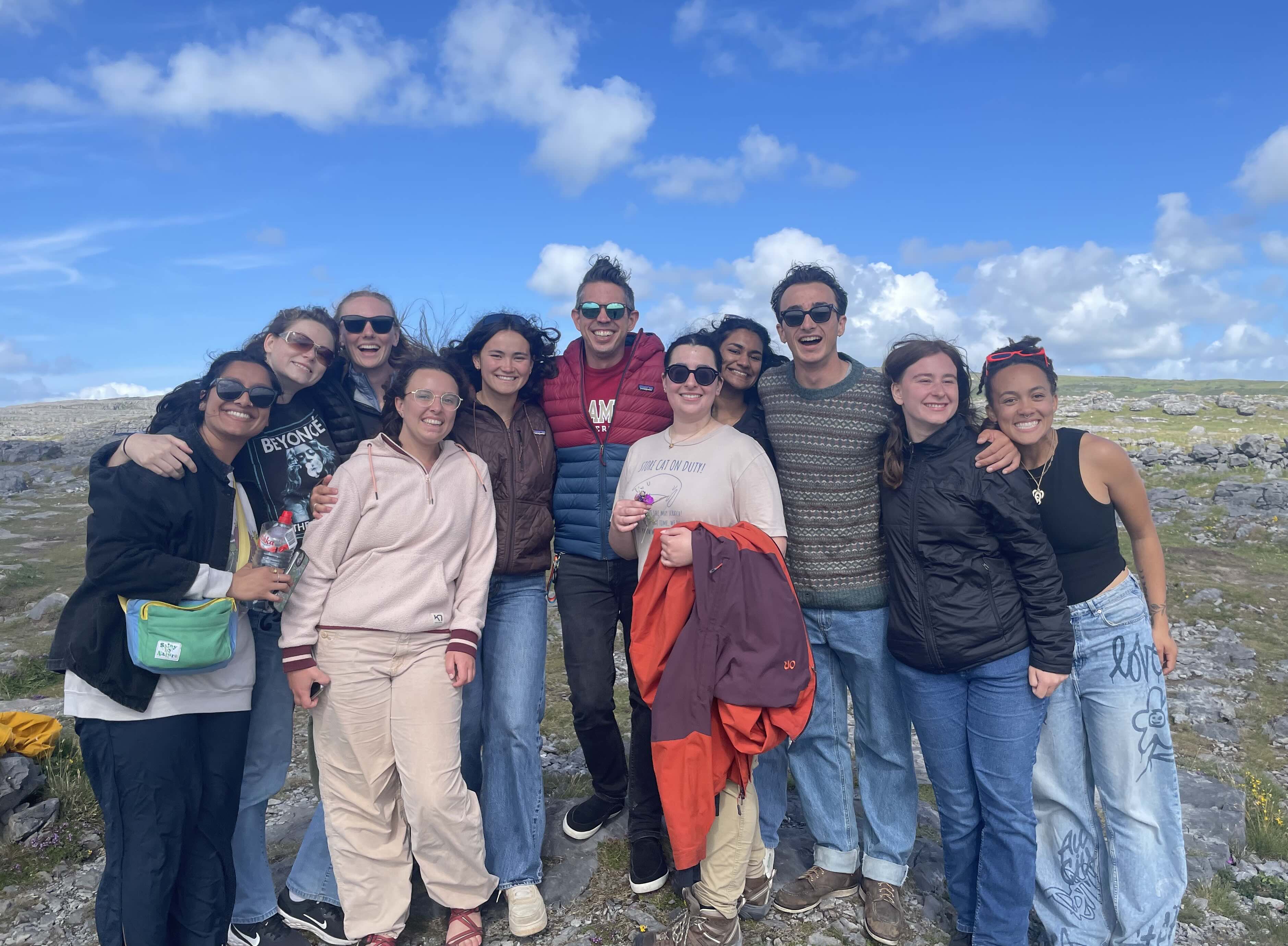
“Being in a space that was so concentrated with people who practiced these skills over their lifetime was powerful,” said Kate West BA’26, a Peace and Justice Studies major at Willamette. “These weren't just career skills — this was the disposition with which they lived their lives.”
The summit incorporated neuroscience, embodied practices, and storytelling to build connections. Each day began with meditation in Corrymeela's heart-shaped chapel, followed by exercises led by neuroscientists to prepare participants' bodies and minds for deep listening and dialogue.
Students witnessed firsthand how sectarian divisions still impact daily life in Ireland. During their time in Galway, they met locals who shared personal stories, including one man who had to flee to Scotland as a youth just to maintain a friendship across Protestant-Catholic lines.

“Hearing his story about how that was the reality of his own life made the history (of Ireland) so much more real,” said Kaitlin Imai BA’26. “Having those interactions really added to our experience.”
The experience has already begun rippling out to impact the Willamette community. Last fall, student leaders facilitated “radical belonging” conversations on campus in conjunction with a visit by author Ben McBride, applying lessons learned in Ireland to bridge divides closer to home.
“A lot of what we do is about getting people in the room,” explained West. “When you foreground storytelling and invite people to share their lived experiences, that's more effective than starting with divisive topics.”
The Conversation Project itself emerged from concerns about polarization following the 2016 U.S. elections. “We saw people losing the capacity to sit with discomfort, to listen generously, to welcome positions different from their own,” said Associate Professor of History Wendy Petersen-Boring, who co-leads the project with Professor of Politics, Policy, Law and Ethics David Gutterman. “These are hallmarks of liberal arts education — you can't have liberal education without these skills.”
“When you foreground storytelling and invite people to share their lived experiences, that's more effective than starting with divisive topics.”
— Kate West BA'26
For the students, the Ireland experience proved transformative. Some have created new academic paths in peace and justice studies. But perhaps most importantly, they gained confidence in their ability to help others bridge seemingly impossible divides.
As Katherine Thornton BA’25 reflected, “Every room I walk into now, I think about the purpose of being in space with other people and the purpose of collective work. This trip and the Conversation Project shaped how I see that.”
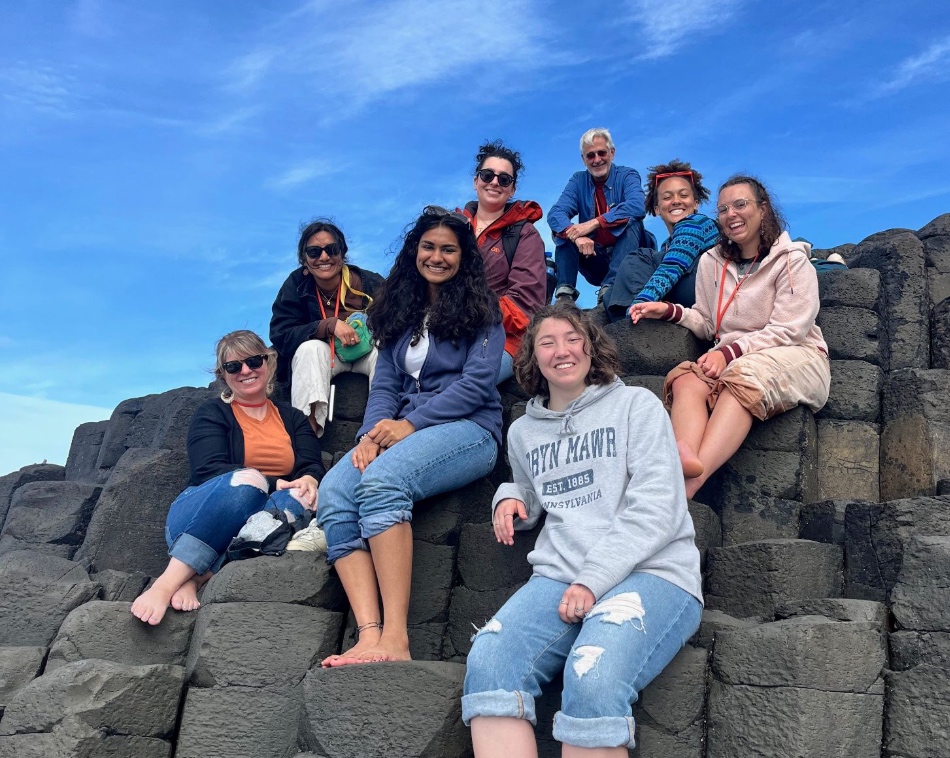
The momentum continues as Willamette integrates these dialogue principles into first-year programming and expands community partnerships. In a time of deep national division, these students are helping chart a path forward — one conversation at a time.
